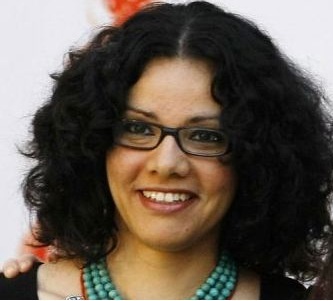
What is happening in Egypt cannot be reduced to a simple conflict between Islamists, secularists and the military. It is a fundamental clash over conflicting concepts of “freedom”.
The millions of anti-Morsi protesters who flooded the streets across the country were out to oppose what they saw as a dictator-in-the-making who was robbing them of their freedom, even going so far as to call upon the curtailer of their freedom for six decades, the military, to intervene.
Morsi sympathisers, who have risked life and unpopularity to camp out in support of their president, also believe that they, too, are fighting for freedom.
Is this simply sloganeering and rhetoric or can both sides simultaneously be defending freedom?
On the anti-Morsi side, though the sheer scale of the calls for his ouster made him lose what was left of his shaky democratic legitimacy, not to mention his credibility, the behaviour of many since has been cynical and troubling. There are those who sing the praises of the army, even as the military manoeuvres to dominate and neuter another “transition”, and others cheer at the arbitrary arrests of Muslim Brotherhood leaders and members, forgetting that they could be next… again.
But the ultimate cynics in this drama have been the Brotherhood. After a year spent knocking out the teeth of what little democratic freedom Egypt had, Morsi’s supporters now cry “democracy”. By deftly switching a single letter, their traditional rallying cry of Sharia has now morphed into shariya, or legitimacy. And they manage to keep a straight face while accusing the opposition of chumming up with the military, even though they spent the past two years ingratiating themselves to the generals while leaving the rest of the country to get on with the business of revolution.
More infuriatingly, and worryingly, while they engage in an apparently rational discourse with the outside world about democratic legitimacy and due process, it is an entirely different matter with their loyalists. Forget about democratically elected, Mohamed Morsi was actually divinely selected.
A preacher associated with the Brotherhood told pro-Morsi supporters that visions had confirmed that the angel Gabriel had visited their encampment at Rabaa Al-Adaweya and that the prophet Muhammad himself had stood aside for Morsi to lead prayers.
This cult-like devotion, in which the will of the people is trumped by the will of the anointed, will convince many Egyptians that getting rid of Morsi was the right thing. But such incidents should not be used to tarnish every Islamist with the same brush.
There are plenty, especially among the younger, more liberal wing of the Brotherhood who truly believe in democracy. That is why they broke away and joined the revolution, while their elders insultingly told Egyptians that it is their “duty” to obey their ruler, even if he was a tyrant. It is also why many young (former) members are distancing themselves from the movement today.
Moreover, beyond this cynical power tussle, there is a deeper struggle over values, a clash between conflicting conceptions of “freedom”. The revolutionary Tahrir model of democracy is a grassroots one in which the people become their own masters, without dictators, generals or religious authorities, and in which freedom is both inclusive and individual, where the leaders are actually the followers of the people’s will.
In contrast, the Brotherhood has always taken a paternalistic, collective view to “freedom”. Even though the movement has evolved from an early disdain and hostility towards democracy to adopt many trappings of secularism and an increasingly democratic discourse, with its continued ideological focus on the Islamic world as a whole, the Brotherhood’s idea of freedom is to “liberate” the Umma, and not to empower individual choice.
Of course, that does not mean that the Brotherhood would have abandoned “democracy”. But the framework they favoured seemed to be one loosely based on the Iranian model in which the people get to go to the ballot box every four years to choose a figurehead president and a toothless parliament, while a group of elders and betters decides the real affairs of state.
The Brotherhood’s holier-than-thou attitude to Egyptian society is reflected in everything from the theories of its main intellectuals and its ossified internal hierarchy to how Morsi seemed to be the president of the Brotherhood’s Guidance Bureau rather than “of all Egyptians”, as he promised in his inaugural speech.
It was also evident in how his 12 months were spent not in addressing Egypt’s myriad practical crises, but mainly in trying to consolidate the Brotherhood’s grip on power, engaging in identity politics and setting in place the ideological and legal groundwork for an Islamic state.
Morsi appointed loyalists and allies to prominent positions, such as lapdog prosecutor general Talaat Abdallah, jokingly known as the president’s “personal lawyer” and “private prosecutor”, who, among other things, targeted anti-Islamist activists and the judiciary. He also expended every effort to raise the prominence of Sharia in the constitution and to give the state the power to act as the people’s moral guardian, including suspending democracy altogether last November to pass through this controversial founding document.
That Egypt’s Big Brother so fiddled while Egypt burned has struck many Egyptians as psychotic. But when viewed through the Brotherhood’s ideological prism and when you apply the movement’s closed-circuit logic, Morsi’s irrational behaviour makes much more sense.
One of the Brotherhood’s founding myths and fundamental articles of faith is that Egypt, and Muslim’s, weakness in the contemporary world is not due to a complex interplay of political, economic, social, historical and political factors but is simply a symptom of moral decadence and so the sooner Egyptians return to the “straight path” and adopt the Quran as their constitution, the better.
Like rightist, back-to-roots, supremacist movements around the world, the Brotherhood’s simplistic, reductionist diagnosis worked just fine to win them support when they were untested in opposition. But when faced with the realities of running a real country, their ideology was found seriously, troublingly and disastrously wanting.
It would be unfair to single out the Brotherhood, as paternalism is not alien to the Egyptian political landscape. Not only did Mubarak patronisingly regard all Egyptians as his sons and daughters, but the Egyptian military has, for the past six decades, treated the population like errant children, not responsible citizens, starting with the fateful decision not to hand over power to a democratically elected civilian government within three years of the 1952 revolution/coup.
Similar to the Islamists, the army sees itself as the protector of a number of fundamental freedoms. In addition to safeguarding Egypt’s freedom from foreign occupation, the military sees itself as the ultimate guarantor of Egyptians’ social freedom and safety, not to mention what it regards as the nation’s collective dignity.
And, despite the military’s miserable track record in suppressing political freedoms, its more relaxed attitude to social freedoms is one vital factor behind the 30 June mass revolt. Egyptians had risen up in 2011 to increase the sum of their freedoms but were then gripped by the fear that, in return for a notional, nominal ‘democracy’, they would fail to gain political freedom and lose the social freedoms they once enjoyed.
This is perhaps best illustrated by rewinding back to the 1950s when Gamal Abdel Nasser and his fellow free officers established a single-party socialist state which restricted political freedom severely, but strove, in words if not in deeds, to maintain the values of equality between all Egyptians, solidarity, social and economic justice and freedom of belief. Of course, back then, there was also an element of collective freedom, but it was class-based and anti-colonial, rather than faith-based.
In terms of social freedom, the 1953 constitutional declaration not only made no mention of Islam, it also declared that “freedom of belief is absolute”, something that is almost unthinkable in the current political climate. The 1956 constitution does mention Islam as “the religion of the state”, but when read in the context of the document as a whole, it seems like a descriptor of the majority situation rather than an article of faith, but makes no mention of Sharia.
This is reflected in the intellectual climate of the time which often expressed a clear disdain for religion and tradition as holding progress back, and in how some writers and artists openly rejected faith or questioned it in their works. It is also visible in how almost all Egyptian women, empowered by the constitution if not by society, did not cover their hair and in how Nasser refused the Brotherhood’s demands to impose the hijab.
So we are left with something of a paradox. Back in the 1950s and 1960s, Egypt had a modernising political elite trying to drag a largely traditional population towards their vision of modernity. In the 21st century, we have a traditionalising elite trying to drag a modernising population back to their vision of tradition. And in both cases, the sum of all freedoms enjoyed by the people adds up to not enough.




